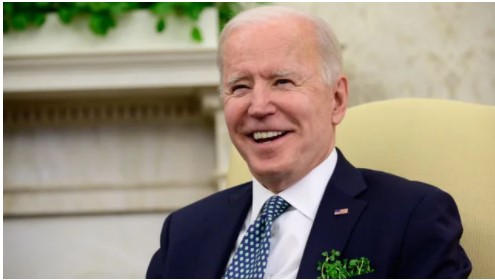
With the passage of President Biden’s coronavirus relief bill, Democrats are setting out to reclaim their populist birthright. And, they hope, reverse their losses among white working-class voters.
The new law is being called “transformational” for a reason. It represents a fundamental shift in the Democratic Party’s approach to reducing poverty in America. The fashionable liberal theories about the “culture of poverty” that took hold in the 1960s held that what poor people needed was more power and better values. As if the government could step in and try to change those things without antagonizing the poor and generating a political backlash.
The Biden program assumes that what the poor really need is money ($1,400 per person to begin with). The vast majority of the poor will know what to do with the money. A lot of middle-class Americans who are not poor but not part of “the one percent” — and who have suffered losses in the pandemic — will also get money.
In recent years, we’ve been seeing a striking new pattern in American politics. For a century, it’s been true that the wealthier you are, the more likely you are to vote Republican. What’s new is that today, the better educated you are (especially among whites), the more likely you are to vote Democratic. Democrats have become less of a populist party and more of a liberal party. The party’s core support now comes from the educated upper middle class — the “woke,” in liberal parlance.
First and foremost, Democrats have to resist any trace of condescension. Like talking about how hard it is to reach rural and small town voters who “cling to guns and religion.” And saying “You could put half of Trump supporters into . . . a basket of deplorables.” That’s the great thing about Joe Biden. He doesn’t have a condescending bone in his body.
Republicans have been boasting about the fact that, under Donald Trump, the GOP has become a blue-collar party. Sen. Josh Hawley (R-Mo.) tweeted on election night in November, “We [Republicans] are a working class party now.” What Republicans actually are is a white working-class party. White voters without a college degree voted better than two to one (67 to 32 percent) for Donald Trump over Joe Biden. In this month’s PBS News Hour-Marist poll, President Biden’s job approval is 35 percent among non-college whites and 60 percent among whites with a college degree.
There are actually two varieties of populism: liberal economic populism, which Biden wants to reclaim, and conservative cultural populism on issues like race and religion and immigration — issues that gave Donald Trump his support from white working-class voters.
Those voters don’t qualify for special treatment under the liberal mantra of “diversity” and “inclusion.” But they are covered by Biden’s pledge to help “millions of people out of work through no fault of their own. I want to emphasize that — through no fault of their own.”
Biden, who has a spotty record on liberal issues, has made his peace with progressives in the Democratic Party. Liberals can hardly complain about a candidate who was vaulted to the Democratic nomination and the presidency by Black voters. Sen. Bernie Sanders (I-Vt.), the patron saint of educated liberals, called Biden’s American Rescue Plan, “the most significant legislation for working people that has been passed in decades.”
Biden is an old school Democrat. His model is Franklin D. Roosevelt. The Great Depression of the 1930s was like a natural disaster that affected everybody — just like the pandemic now. When Democrats took over the federal government in 1933, they came up with an ambitious program of public works. It was called “relief,” not “welfare.” Not entirely unlike the cash payments and tax credits offered by the COVID relief measure that just passed.
Meanwhile, Republicans are in a difficult position. Not a single Republican voted for the relief plan. Congressional conservatives are denouncing it as “socialism.” According to the Pew poll, however, 70 percent of Americans — and 41 percent of Republicans — support the plan.
Republican candidates will most likely follow the Trump strategy: Try to compete with the Democrats’ newfound economic populism by embracing cultural populism, like opposing “cancel culture.” Can saving Dr. Seuss and Mr. Potato Head compete with a $1,400 check?
Republican strategists know that the white working-class vote has been getting smaller. Their answer is to pass state laws that curtail voting rights and make it harder for people to get to the polls. All in the name of stopping “voter fraud.” It’s a solution for which there is no known problem.
Democrats have little hope of winning back the solid majorities of white working-class voters they once had. But with the party’s new economic populism, they could make big enough gains to stay competitive. As long as they resist the temptation to patronize those voters. The key is to give them the means to survive a catastrophe that all Americans face. With millions of unemployed workers, shuttered businesses and closed schools, this is about survival — and survival requires money.
As is often attributed to great American wit, Fred Allen: “There are many things in life that are more important than money. And they all cost money.”
Bill Schneider is a professor at the Schar School of Policy and Government at George Mason University and author of ‘Standoff: How America Became Ungovernable’ (Simon & Schuster).


